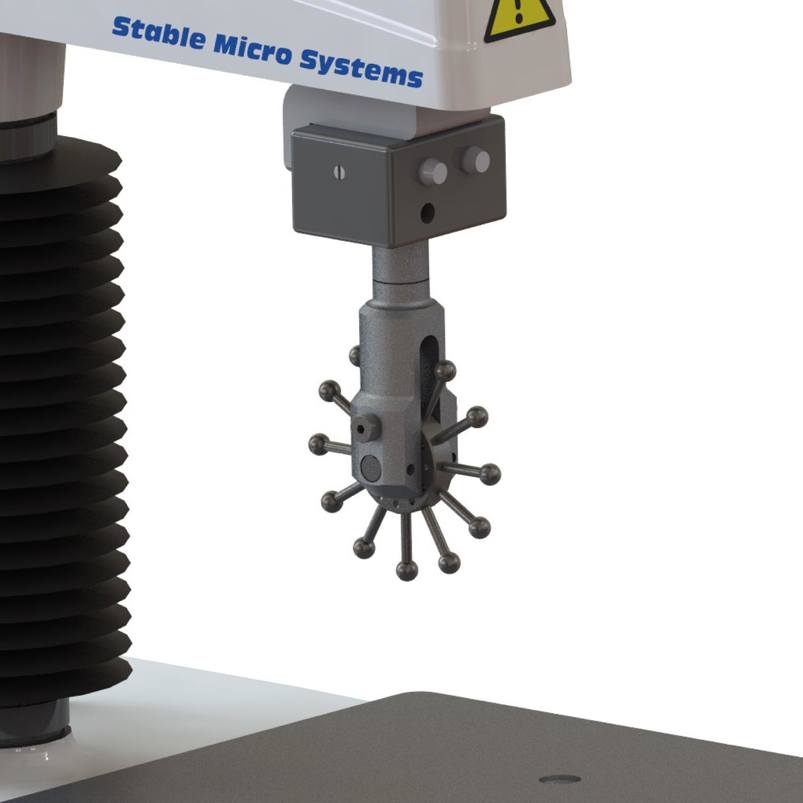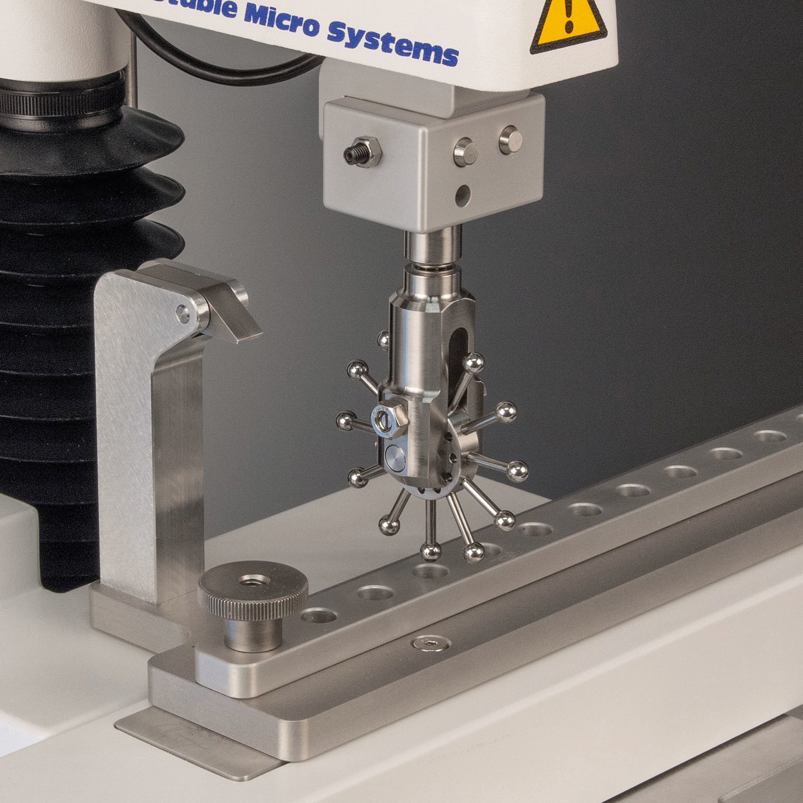Product overview
The Multi-head Indexing Probe is a device that is usually available for use on the Automated Linear Indexing System (ALIS). It is a device suitable for the measurement of e.g. tape adhesion. In this application the sample requires that the probe is clean and dry for each test. This may slow down the cleaning time between tests, therefore this device can be indexed after each test by an arm on the end of the plate of the ALIS, thus changing the probe to a new probe without manual intervention. This thereby allows for ‘walk-away’ time from testing due to the system being able to automatically index to a new probe after each test.
The Multi-head Indexing Probe is also available separately (i.e. without using the ALIS) for those users who just wish to speed up their testing whilst manually indexing the probe to the next clean probe during testing, to avoid stopping to clean and dry between tests. Both ways of using this Multi-head Indexing Probe serve to increase sample throughput to get data collected in less time by saving the necessary cleaning to the end of multiple tests.
How does the Multi-head Indexing Probe work?
Benefits and limitations
- Allows the testing of multiples of samples without the need to clean the probe between tests
Technical information
Installation
Full installation instructions are provided within the Education Zone of the latest Exponent/Connect software version and on the technical information sheet accompanying this product.
Chemical compatibility
Stable Micro Systems probes and attachments are commonly made from four materials: anodised aluminium (AA6082 T6), stainless steel (316 T), Delrin (acetyl copolymer) and Perspex (polycarbonate).
In general use, probes and attachments made from these materials will be suitable for testing food products and inert non-food materials.
The four materials listed above are not universally resistant to all types of chemicals and as such the compatibility of the probe/attachment material with the product (to be tested) must be established to prevent damage to the probes and attachments. If the compatibility of the product with the probe is unknown to the customer then the chemical information about the product (Material Safety Data Sheet or Product Data Sheet) should be submitted to Stable Micro Systems. Stable Micro Systems will then assess the suitability of the probe/attachment material for use with the product and advise accordingly. If this advice is not sought then Stable Micro Systems will not accept liability for probes/attachments damaged by chemical attack from the product being tested.
Cleaning and maintenance
All probes and attachments may be cleaned in warm (or hand hot) water using a mild detergent. A soft brush may be used but abrasive cleaning aids should be avoided. Stable Micro Systems products should not be microwaved or cleaned in a dishwasher.
Screw threads should be lightly lubricated after drying using a light lubricant, e.g. petroleum jelly, mineral oil. This will aid the fitting and unscrewing of the item. Each component of a probe or attachment should be wrapped separately when stored, to avoid scratching or chipping. This will safeguard against any unnecessary damage to the accessory.


